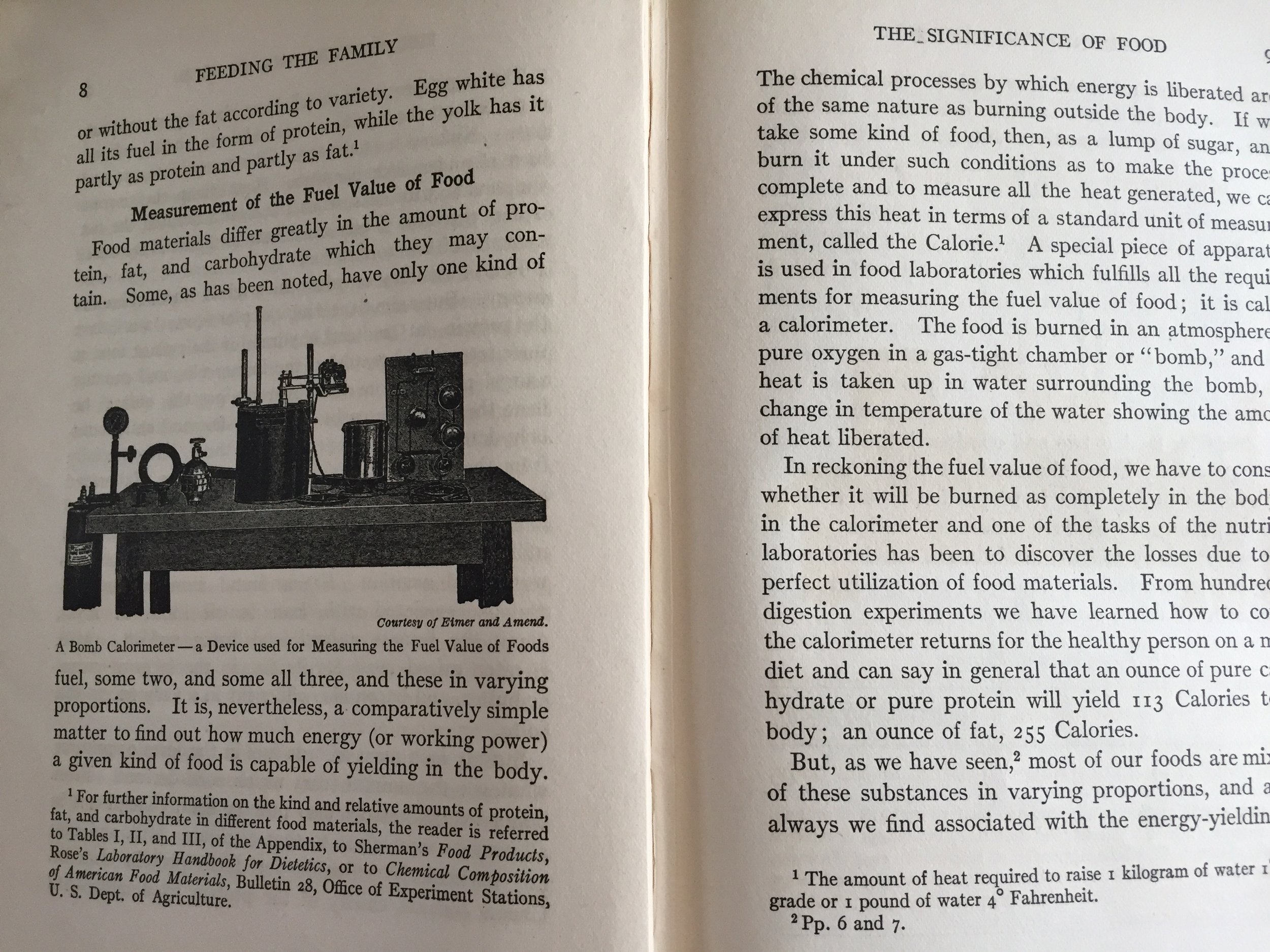Diet lessons from a 100 year old textbook
/Science progresses and the old ideas we have lived by are built upon or changed. We go to school, learn, experiment, update the knowledge base, and then start over again, mentoring the next generation to do the same. That is an ideal.
Unfortunately, one area seems to have stopped with this textbook from 1916. Repackaged? Yes. New versions? Yes. But current long-term research no longer backs up what is taught in this book and through modern media versions.
The picture above is a 100+ year old chamber to measure the metabolic requirement of babies. The technology has progressed, but the science is principally the same. I have stayed overnight, for several research studies, in the metabolic chamber at Vanderbilt University Medical Center. (In case you are wondering, it is a small room with a bed, desk, and window.) This technology measures how many calories a person burns during the time they are in the chamber.
This device measures the calorie content of food. Again, technology may look different 100 years ago, but the basic science is as today.
So, what is the problem? Calories burned. Calories eaten. Simple math, right?
That is what was assumed 100 years ago. I actually have nothing harsh to say about what they taught then. For then.
1400
calories a day for a man to lose weight
1000
calories a day for a woman to lose weight
They taught the latest information they had. However, the knowledge base has changed since then. Research shows (though seldom promoted by diet gurus) -
- restricting calories this low decreases muscle mass and metabolism
- counting (carbs, calories, fat, protein) distorts your relationship with food and creates food obsessions
- living with food rules increases binge eating
- dieting of all kinds decreases trust of yourself and food
- dieting fails long-term 90-98% of the time (a.k.a. you gain the weight back, usually plus some)
- food restrictions negatively impact relationships and mental health
So, what is a healthy way to eat?
- Listen to when your body tells you to eat.
- Learn what foods make you feel fantastic and energetic, and which ones don't.
- Give yourself unconditional permission to eat - even the foods that don't make you feel great. When you truly want them, eat them fully aware of the result and without any guilt.
- Savor the food you eat. Turn off the TV and put down the screen. (Hint: research also reveals that we eat 10% more when multi-tasking a meal.)
- Stop when you are no longer physically hungry.
- Trust that your body wants to be at a healthy weight and it will tell you what to do.
Next time you are tempted with "I'm going to try the new ABCXYD diet" (no, that is not a new diet - at least not one I've heard of), remember it is really not new.
It's just the newest flavor of the dieting that gained ground during the Victorian era. (That is a history lesson for another post.)
If you truly want to try the latest and greatest research has to offer, experiment with the list above. It is mindful-intuitive eating. And it works.







